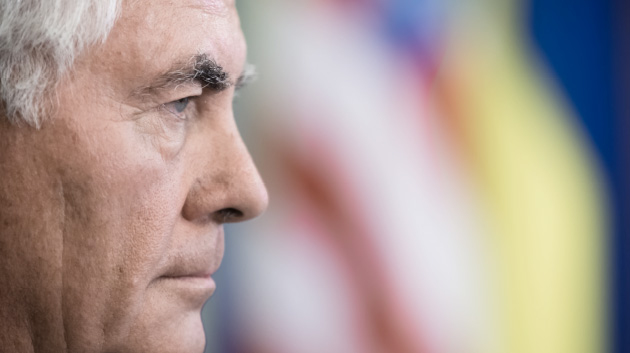Tillerson Slams China’s Infrastructure Investments and South China Sea Problem Strengthening U.S.-India Relations
Drop of Light / Shutterstock.com
U.S. Secretary of State Rex Tillerson slammed China’s economic and military expansion within Asia, in an address at CSIS in Washington D.C.
The speech was given at the same time as the opening of China’s 19th National Congress of the Communist Party. The U.S. has recently been stressing the importance of cooperation with China as a top priority in overcoming the North Korea missile problem. Their relationship, however, is beginning to change as Trump confirmed that U.S. “military solutions are now fully in place, locked and loaded”.
China’s Infrastructure Investment is Economic Exploitation
Tillerson is closely watching China on two fronts: its infrastructure investments in minor countries based on the ‘One Belt, One Road’ ideology, and its military dominance over the South China Sea through facility construction.
Tillerson criticized China for its infrastructure maintenance in other countries. Sending large numbers of Chinese workers to build and maintain infrastructure does not contribute to job creation or economic growth in that country. This is exploitation. Tillerson also warned countries that are receiving China’s support, saying that those countries should think about sovereignty and their right to protect their economy.
He added that China’s provocative actions in the South China Sea are direct provocations towards international law and order.
The U.S. Wants India to Be A Strategic Partner
Tillerson invited India to form a 100-year strategic partnership to spread democracy throughout Asia. He added that the U.S. cannot ever form an alliance of this sort with China as they do not embrace the values of democracy.
India is a developing nation with a population of over 1.3 billion, and as a nuclear possessing country it can be said to be China’s greatest rival. Tillerson is scheduled to visit India next week.
India is currently participating in INDRA 2017, a joint military exercise with Russia involving ground, air and naval forces around Vladivostok. By emphasizing its military connections with Russia, India is warning China to stop their military advancement in the Pacific.
Master Okawa’s 20-Year Prediction
Master Ryuho Okawa, founder and CEO of Happy Science, accurately predicted the current crisis in Asia and the U.S. response in a book published 20 years ago.
“The U.S. will separate China and North Korea to resolve the North Korean problem before moving to encircle China. Other UN countries such as Japan, Germany and India will probably get involved, make an ally out of Russia, and eventually create an encirclement network around China. The reason for this would be China’s military expansion and increasing hegemony.”
“It may look like China’s ‘open Socialism’ economic market system is succeeding, but this is not true. Mainland China suffers from inflation and if left alone, their economy will eventually collapse. This is all very well, but it becomes a problem when they resort to military expansion as a way out. There is a danger that China will try to occupy economically profitable areas such as Vietnamese oilfields.”
U.S.-Japan Shared Values Will Lead the World
Suppressing totalitarian countries such as North Korea and China, and the strengthening of ties with democratic countries is a good thing for the Asia Pacific.
Additionally, America’s new strategic partner, India, is pro-Japan. One reason is because Japan fought in WWII to emancipate Asia from Western colonization. India’s independence from 150 years of British occupation was inspired in part by Japan’s ideology.
Unlike China’s “One Belt, One Road’ infrastructure plan, Japan has an innate ability to invest in the things that truly bring prosperity to the locals.
In his book “The Decision to Prosperity” Master Okawa says, “The values shared by the U.S. and Japan will lead the world for the next 300 years”.
What China and North Korea fear most are the values of democracy, liberty, human rights and market economy. Therefore the U.S. and Japan must take the initiative to spread those values into China and North Korea. The Trump administration has boosted this trend, so Japan must now put in more effort to create a world where justice prevails.



















